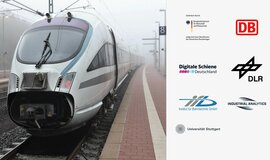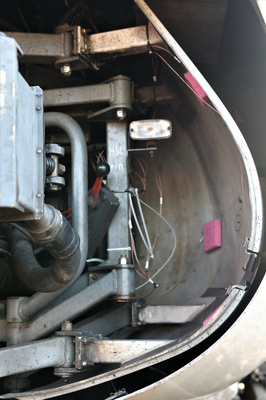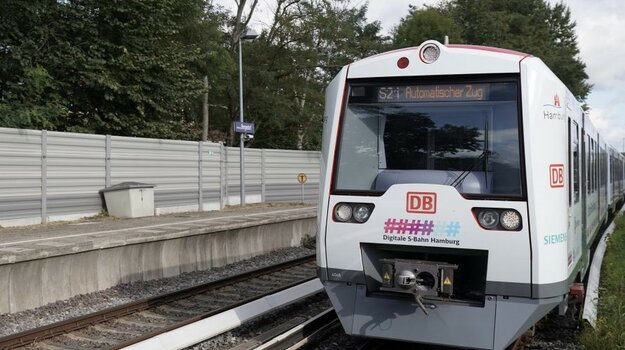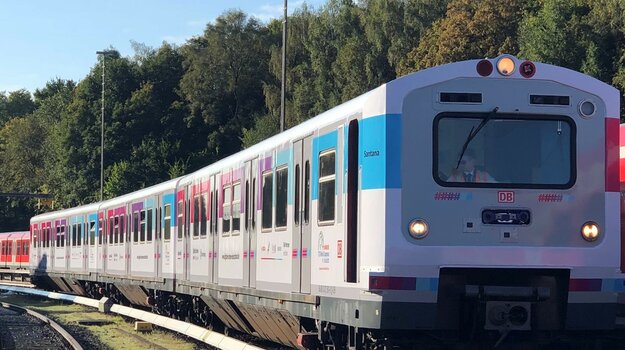
New impact-detection technology developed for rail operations
The introduction of fully automated driving is one of the most important goals of Digitale Schiene Deutschland. In addition to being equipped with Automatic Train Operation (ATO), trains are also being fitted with state-of-the-art sensor technology that enables them to perceive their surroundings and locate themselves precisely. This technology is currently being tested in several pilot projects [Digitale S-Bahn Hamburg and Sensors4Rail].
To make automated driving possible, many new technological components must be introduced into the rail system. One important component is impact detection, which makes it possible to correctly classify impacts and rollovers at the front of the train – and choose the right automated response.
To improve the quality of train operations and support train drivers with intelligent functionality, Digitale Schiene Deutschland is taking part in the joint project, ‘AI Methods in Condition Monitoring and Demand-Adapted Maintenance of Rail Vehicle Structures’ (KI-MeZIS), which began at the end of 2021. The aim of the project is to monitor train movements using AI. AI will interpret data from sensors at the front of the train and underneath it.

This will enable impacts to be detected, and the vehicle’s condition to be assessed. The AI will interpret sensor data and evaluate whether it should stop a train journey immediately after an impact, rollover, damage or collision – or whether it can continue to the next station, a nearby workshop or until the next scheduled maintenance. The recorded sensor data can then be used for strategic maintenance and demand-based design of vehicles.
The project is supported by the BMWK technical programme ‘New Vehicle and System Technology’, within the framework ‘Artificial Intelligence as a Key Technology for the Vehicle of the Future’.
The consortium partners and research and development (R&D) contractors involved in this project are: DB Netz AG as part of the sector initiative Digitale Schiene Deutschland, the Data Intelligence Centre (House of AI of DB AG), German Aerospace Centre (Deutsches Zentrum für Luft- und Raumfahrt, DLR), Industrial Analytics GmbH, Stuttgart University and the Institute for Rail Technology (Institut für Bahntechnik GmbH, IFB). Associated partners are J.M. Voith SE & CO. KG, Group Devision Turbo, Stadler GmbH, DB Systemtechnik and, from January 2022, train supplier Dellner.

